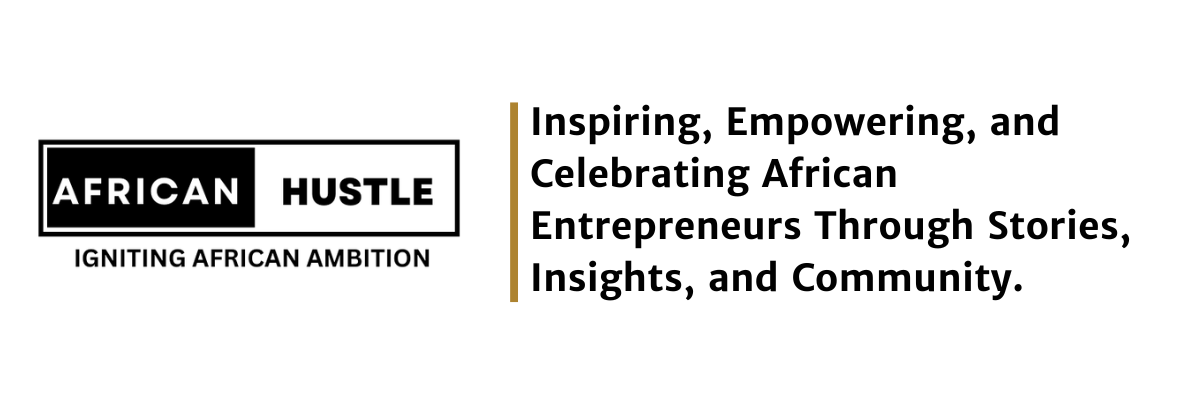
Welcome to African Hustle! Your bi-weekly dose of inspiration and smart insights into African entrepreneurship — featuring real stories about tech, culture, startups, founders, and innovations shaping the future of the continent.

Main Issue
There is so much to say, yet every time I sit before the keyboard, I get a bit hesitant. What is urgent enough to bring to the table? Which truth must be told today?
Two things shaped the nature of today's newsletter:
I am listening to a song by Winky D, Siya — a Shona word meaning leave. The song admonishes people to leave things they did not work for. It advises us not to be swayed into blind conformity and to leave the pursuit of an easy life.
I just read and reread a “Hypothesis of Corruption” (now popularly known as Jason’s Law of Corruption) propounded by a Nigerian columnist, Pini Jason Onyegbaduo, in 1988. In it, he argued that Africans are roughly bifurcated into two groups: the “ruling wicked” and the “waiting wicked.”
. . . the decibel of an average African’s public outcry is directly proportional to his distance from the opportunity to do exactly what he condemns.
I want to be successful. I want to be filthy rich, and honestly speaking — I don’t mind doing so quickly. When the opportunity comes, will I listen to Winky D and refuse to harvest where I did not sow? Or will I prove Jason right, that I, too, was just waiting for my turn? That I am part of the waiting wicked!
The farther we are from power, the louder we protest corruption. The closer we get, the quieter we become. And when we finally arrive, the noise disappears completely.
Are you part of the congregation of the waiting wicked?
The Dilemma
Corruption is a silent tax that chokes innovation, stifles competition, and discourages honest businesses from thriving. Many entrepreneurs find themselves suffocated by a system where bribes, favouritism, and bureaucratic inefficiencies dictate success.
Yet, despite widespread frustration, corruption continues to thrive. Why?
Because most of us who complain about corruption are not actively working to dismantle it. Instead, we adjust to it, justify it, or —when given the chance and power— perpetuate the very practices we once condemned.
BUT!
What if we, as entrepreneurs, forge a different path? What if, instead of waiting for ethical leadership, we became the ethical leaders Africa needs?
I am constantly told that change starts with me, perhaps it really does! Maybe the change we crave that will bring peace and prosperity to Africa can start with us, the hustlers.
Why Complaining Won’t Fix Corruption
But Entrepreneurship Can
If corruption is so bad, why does it persist?
The hard truth is that corruption is not just a political problem — it is deeply embedded in society and our business culture. From securing permits to winning contracts, we often find ourselves paying “informal fees” or needing “connections” to get things done.
If we are not actively rejecting corrupt practices, we are enabling them. This is the uncomfortable reality!
The only thing necessary for the triumph of evil is for good men to do nothing
How many times have you heard or even said:
✅ This is just how things work in Africa.
✅ If you don’t play the game, your business won’t make it.
✅ Everyone does it, so what choice do I have?
✅ When in Rome, do as the Romans do!
This mindset enables corruption. The biggest obstacle to ethical entrepreneurship in Africa is not only corrupt officials. It is entrepreneurs who justify corruption as a survival tactic.
If we want to change the system, we must create businesses that challenge it rather than conform to it.
True leaders do not adapt to broken systems; they build better ones. We must ask ourselves this:
🔹Are we designing business models that reduce the need for bribery and favouritism?
🔹Are we investing in solutions that simplify bureaucratic processes?
🔹Are we creating networks that reward integrity rather than exploitation?
In 2011, Nigerian entrepreneurs Oluseun Onigbinde and Joseph Agunbiade came up with the idea for open data access to government spending for public knowledge. This led to them founding BudgIT. The startup was meant to be an answer to government corruption and mismanaged public funds.
Instead of merely complaining, they created a civic-tech platform that tracks public spending and makes government finances transparent. Today, BudgIT has exposed billions of naira in misallocated funds, proving that entrepreneurs can fight corruption through innovation.
Like Oluseun and Joseph, we too can take steps to hold not just the government accountable but ourselves.
The Power of Founders
I watched with fascination as American billionaires and maverick business leaders started to rally around Donald Trump. It was not just Elon Musk; the list included Meta’s Mark Zuckerberg, OpenAI’s Sam Altman, Amazon’s Jeff Bezos, Google’s Sundar Pichai, Apple’s Tim Cook, TikTok’s Shou Zi Chew and LVMH’s Bernard Arnault.
This stressed to me the power of entrepreneurs(the future billionaires) as influencers of public opinion, government policy and culture architects.
As a business founder, you are much more than a CEO. You are the architect of company culture.
How a company operates internally mirrors how it interacts with the external market. A corrupt business culture will ultimately contribute to a corrupt economy.
Culture is not written, it is lived. If you want an ethical business, you must create it. And lead by example, too.
✅ Reject the “Everyone Does It” Mentality
Entrepreneurs must consciously build companies that do not rely on backdoor deals, rigged contracts, or political connections.
✅ Build Systems, Not Just Slogans
A company’s commitment to integrity should be reflected in how it operates: its hiring process, financial reporting, client engagement, and supply chain practices. Ethical policies should be embedded, not optional.
✅ Reward Integrity Over Short-Term Gains
A business that prioritizes ethics may face short-term struggles, but it builds long-term credibility. Customers, investors, and partners respect companies that stand for something greater than profit.
After the 1994 genocide, Rwanda was one of the most corrupt nations in Africa. Today, it has one of the lowest corruption rates on the continent. Why? Because the government and private sector worked together to instil a culture of zero tolerance for corruption. Entrepreneurs who once relied on bribes now thrive under a transparent system. Rwanda proves that corruption is not a permanent disease, it can be treated.
Fighting Corruption in Your Business
Corruption often feels like an impossible challenge, but the solution starts with small, consistent actions.
🔹 Digitization & Transparency: Move transactions online to reduce human interference and bribery risks. Blockchain technology can prevent fraud by keeping an immutable record of transactions.
🔹 Refuse to Pay Bribes: It may be difficult, but businesses that refuse to participate in corruption force market shifts. Change happens when enough businesses refuse to play dirty.
🔹 Whistleblower Protection: Create safe spaces for employees to report unethical behaviour without fear of retaliation.
🔹 Ethical Partnerships: Work with investors, suppliers, and clients who prioritize integrity over short-term gains. Corrupt partners will drag your business down.
Corruption has a Cost
Someone once told me that to make it, you either have to be corrupt or participate in some form of dark arts - ritual or sacrifice. Unfortunately, many hustlers act as if these are their only two choices, and rally towards corruption as if it is the lesser of two evils.
If I am a beneficiary of money siphoned from the healthcare budget, I then become complicit in the death of thousands due to poor health facilities, lack of medication and equipment and shortage of doctors.
If I am the recipient of an overvalued tender in the education sector, I then again become a reason why there is one more nyaope - drug addict on the streets.
Every corrupt decision you make has a consequence. It might not affect you, but it hurts society.
Entrepreneurs too often believe corruption helps them get ahead — but in reality, it is a long-term business killer.
If you are serious about growing your business, you should shun corruption. Consider the following:
Corruption Discourages Investment
Serious investors avoid corrupt markets because they cannot trust the system. Africa loses billions in potential investment every year due to corruption.
Corrupt Businesses Cannot Scale
You might get a few government contracts through shady deals, but sooner or later, corruption catches up. Whether through scandals, lawsuits, or economic instability, corruption always has a price.
Trust Is the Ultimate Competitive Advantage
In an age where customers are becoming more conscious, businesses that operate transparently will win the future. Ethical companies attract loyal customers and long-term partners.
Africa’s corruption problem will not be solved by speeches or complaints — it will be solved by entrepreneurs who choose to build transparently.
The real test of your integrity is not what you say before you have power, but what you do after you get it.
The future belongs to the entrepreneurs who choose courage over compromise, solutions over excuses, and integrity over short-term gains.
Will you be one of them?
This is not just a business challenge. It is a generational responsibility. Let’s build an Africa where success is defined not by connections, but by competence. Not by bribes, but by brilliance.
It starts with you. It starts today.
“The government you elect is the government you deserve.”
― Thomas Jefferson
Local Hero

Yacouba Sawadogo (1946-2023) Burkina Faso
Work: Farmer and environmentalist.
Impact: Known as the "Man Who Stopped the Desert," Yacouba revived barren land using traditional farming techniques, creating a lush forest in the Sahel region. His methods have been adopted by farmers across Africa. Starting around 1980 during a phase of severe drought, he successfully created an almost 40-hectare forest on formerly barren and abandoned land. Today, it has more than 60 species of trees and bushes and is arguably one of the most diverse forests planted and managed by a farmer in the Sahel.
Why Remarkable: He’s a self-taught farmer whose work has had a global impact on combating desertification.

Proverb Of The Week

A fish rots from the head down.
A company's problems stem from its leadership.
A leader's actions have a big impact on those around them.

Quiz/Trivia
What is the name of the mobile money service launched in Kenya that revolutionized financial inclusion and has been replicated globally?

Did You Know?
Lake Malawi is home to the most fish species of any lake in the world, with 90% of those species being cichlids only found in this lake.

#ShoutOut

By ILRI from Nairobi, Kenya - Segenet Kelemu
Dr Segenet Kelemu, an Ethiopian molecular plant pathologist, is a global leader in agricultural science and a role model for African entrepreneurs. Born in a rural village, she overcame significant challenges to earn her PhD and become a pioneering researcher. Her work focuses on developing sustainable solutions to improve crop resilience and food security, particularly for smallholder farmers in Africa. She has earned accolades such as the L’Oréal-UNESCO Award for Women in Science.
Dr Kelemu’s commitment to empowering farmers, especially women, and her ability to address local challenges with global expertise inspire entrepreneurs to create impactful, sustainable businesses. By breaking barriers in a male-dominated field and dedicating her work to Africa’s development, Dr. Kelemu exemplifies how determination and vision can drive change. Her story is a powerful reminder that African entrepreneurs can achieve extraordinary success while making a lasting difference in their communities.
Enjoyed this post? Share it with someone who might find it helpful and encourage them to subscribe!
If we missed something, we’d love to hear from you — hit reply and let us know what insights you want us to dive into next.
And if this email was forwarded to you, you can sign up here!

